Search
Remove Ads
Advertisement
Summary 
Loading AI-generated summary based on World History Encyclopedia articles ...
Search Results

Video
Introduction to The Great Stupa of Universal Compassion
Description and discussion of the grand building project of the Great Stupa of Universal Compassion in Victoria, Australia, the largest stupa in the western world.

Video
Writing Old Norse in Runes (remake/improved)
Writing in runes isn't a simple one-to-one conversion of one letter to one rune. This video shows how Old Norse was written using the runes of the Younger Futhark, and then looks at examples of real inscriptions from the Viking Age. Contents...

Video
The Great Stupa of Universal Compassion Unveiled in Bendigo
Bendigo is home to the largest Buddhist monument in the western world after the addition of a decorative four-metre finial on top. After 17 years, Bendigo’s Great Stupa of Universal Compassion has finally completed construction, and was...
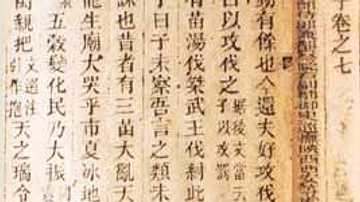
Definition
Mo Ti
Mo Ti (l. 470-391 BCE, also known as Mot Tzu, Mozi, and Micius) was a Chinese philosopher of the Warring States Period (c. 481-221 BCE) associated with the Hundred Schools of Thought (different philosophical schools which established themselves...
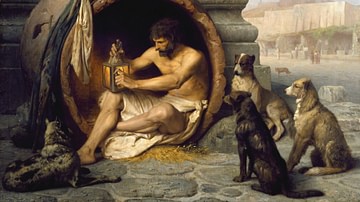
Definition
Diogenes of Sinope
Diogenes of Sinope (l. c. 404-323 BCE) was a Greek Cynic philosopher best known for holding a lantern (or candle) to the faces of the citizens of Athens claiming he was searching for an honest man. He rejected the concept of "manners" as...

Definition
Scientific Revolution
The Scientific Revolution (1500-1700), which occurred first in Europe before spreading worldwide, witnessed a new approach to knowledge gathering – the scientific method – which utilised new technologies like the telescope to observe, measure...
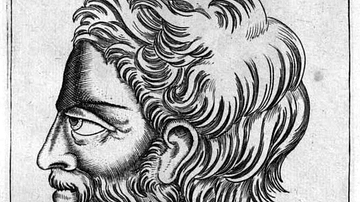
Definition
Archelaus (Philosopher)
Archelaus of Athens (l. c. 5th century BCE) was a Pre-Socratic philosopher in ancient Greece who claimed the first cause of existence was the opposition of cold and heat which caused the separation of the universal essence to produce a plurality...
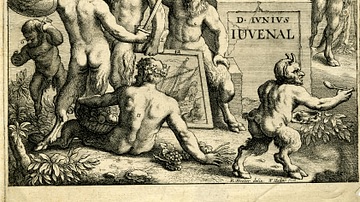
Image
Juvenal
Statue of Junius Juvenal on a pedestal lettered with his name, holding a scroll. Frontispiece to Robert Stapylton's Mores Hominum. The Manners of Men, Described in Sixteen Satyrs by Juvenal (London: 1660 CE). Etching after Robert Streeter...

Video
History of the Holidays: History of Thanksgiving | History
Although Thanksgiving celebrations dated back to the first European settlements in America, it was not until the 1860s that Abraham Lincoln declared the last Thursday of November to be a national holiday.
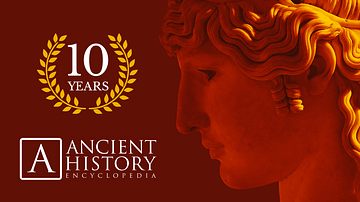
Article
10 Years of Ancient History Encyclopedia
Ancient History Encyclopedia's CEO Jan van der Crabben writes about the organization's 10-year history. Ancient History Encyclopedia just turned ten! On 25 August 2009, we officially launched the Ancient History Encyclopedia website by submitting...